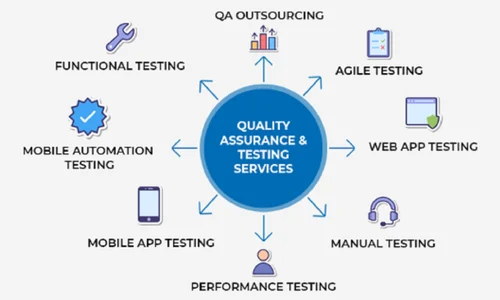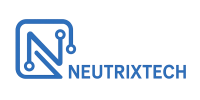Quality Assurance (QA)
Quality Assurance (QA) is a systematic process of ensuring software products are delivered without defects and meet customer expectations. At Neutrixtech, our Software QA Training provides in-depth knowledge of manual and automation testing, real-world tools, and best practices.
This program is designed by certified trainers and experienced QA engineers, focusing on hands-on learning to help participants build a career as Software Testers or QA Engineers.
Why Choose QA Training at Neutrixtech?
Industry-recognized syllabus aligned with current market needs
Hands-on training with real-time projects
Covers manual testing, automation testing, and advanced tools
Learn popular tools: JIRA, Selenium, QTP/UFT, LoadRunner, Bugzilla, MySQL, SoapUI
Guidance for interviews and placement support

Course Modules
Basic Course
Session 1: Introduction to Software Testing
Importance of testing & career opportunities
Difference between project vs. product
QA vs. QC
Manual vs. Automation testing
Roles & responsibilities in a software team
Session 2: Software Development Life Cycle (SDLC)
SDLC stages & methodologies
Cost of defect repair & risks of inadequate testing
Session 3: Requirement Document
Understanding SRS, BRD, FRD
Software Testing Life Cycle (STLC)
Types of applications: Web, Windows, Intranet
Dev, Test & Production environments
Session 4: Types of Testing
Dynamic Testing: Black Box, White Box, Grey Box
Functional Testing: GUI, Database, Security, Compatibility
Performance Testing: Load, Stress, Soak, Scalability
Other Testing: Unit, Integration, Regression, System, Acceptance
Session 5: Test Cases
Designing & executing test cases
RTM (Requirement Traceability Matrix)
Importance of test data & data repositories
Session 6: Bug/Defect/Error
Bug vs. Defect
Bug life cycle, severity & priority
Bug reporting tools: JIRA, Bugzilla, QC
Session 7: Test Strategy & Execution
Test execution process
Sanity/Smoke testing
Retesting & Regression
Test design techniques
Session 8: Test Plan
What is a Test Plan?
Entry & Exit criteria
Test responsibilities & coverage
Exploratory & Ad-hoc testing
Session 9: Automation Testing Basics
Benefits of automation
Automation tools overview: QTP, Selenium, LoadRunner
Basics of VB scripting
Advanced Course
Session 1: Advanced Automation Testing
-
QTP/UFT overview & commands
-
Recording, playback, synchronization
-
Automation framework concepts
Session 2: Object Repository
-
Managing test objects
-
Configuring object identification
-
Shared repository management
Session 3: Script Enhancements
-
Synchronization & recovery scenarios
-
Data-driven testing
-
Import/export test data
Session 4: Actions & Functional Libraries
-
Modularizing tests with actions
-
Creating reusable functions
Session 5: Checkpoints & Output Values
-
Adding checkpoints
-
Parameterization techniques
-
Capturing & analyzing outputs
Session 6: Selenium
-
Selenium IDE & WebDriver
-
Creating & executing Selenium test scripts
Session 7–8: HP LoadRunner (Basics & Advanced)
-
LoadRunner components (VuGen, Controller, Analysis)
-
Script recording, ramp-up/down
-
Auto & Manual Correlation
-
Performance reporting
Session 9: MySQL Database Testing
-
SQL basics: DDL & DML
-
Data validation & queries
-
Keys & constraints
Session 10: HP Quality Center
-
Requirements, Test Plan, Test Lab, Defect modules
-
Traceability & Reporting
Session 11: Bug Reporting Tools
-
JIRA & Bugzilla workflows
-
Issues management & tracking
Session 12: Web Services Testing
-
SOAP & REST API testing
-
Tools: SoapUI Pro, XML validation
-
WSDL specifications
Session 13: ETL & Data Warehouse Testing
-
DWH concepts: OLTP vs OLAP, Schema design
-
ETL process validation
-
SQL queries & UNIX commands
Session 14–15: Mobile Application Testing
-
Native vs. Hybrid vs. Web apps
-
Mobile testing strategies
-
Simulators & Emulators
Career Opportunities
-
Software Tester
-
QA Engineer
-
Automation Test Engineer
-
Test Analyst
-
QA Lead (with experience)
Course Duration & Mode
-
Duration: 2 to 3 months (Basic + Advanced)
-
Mode: Offline & Online Training
-
Projects: Real-time case studies & live assignments
